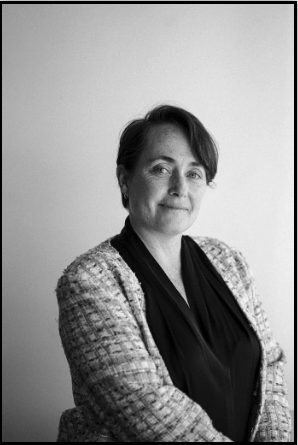Bipolar III disorder is the unofficial term for cyclothymia, a mild form of bipolar disorder. Cyclothymia, sometimes called cyclothymic disorder, is a long-term condition where your moods cycle between hypomania and depression, but they are not incapacitating or suicidal.
Bipolar III disorder is an unofficial name for cyclothymia, a rare form of mental health condition and mood disorder. While cyclothymia is not actually a form of bipolar disorder, it is related to bipolar I and bipolar II. Cyclothymia is characterized by experiencing emotional “ups” and “downs.”
Compared to bipolar disorder, cyclothymia is less severe and not as dangerous to someone’s health. Still, cyclothymia can be incredibly disruptive in daily life if left untreated. Cyclothymia can be managed through a combination of therapy and medication.
Cyclothymia causes a person to experience periods of hypomania and periods of depression. Unlike bipolar II disorder, these depressive episodes usually cause mild symptoms.
During periods of hypomania, a person will experience a drastic increase in energy and an elevated, euphoric mood. Hypomania is likely to cause someone to feel optimistic and elevate their self-esteem. Due to the increase in energy levels, most people go for long periods without sleep.
Someone experiencing symptoms of hypomania will talk faster and more loudly than usual. They may also have difficulty concentrating on one thing and jump from thought to thought quickly. Hypomania is a sign that someone is experiencing mood swings and unstable emotions. However, symptoms associated with hypomania are not usually considered to be dangerous compared to full manic episodes.
During periods of depression, cyclothymia usually only causes mild to moderate symptoms. The symptoms are not severe enough to be considered a major depressive episode. Most commonly, cyclothymia will cause a person to feel sadness, tiredness, and restlessness. Although the depressive symptoms are usually mild, it is important to seek immediate medical attention if you are experiencing any thoughts about suicide or death.
To diagnose cyclothymia, a doctor will conduct a clinical interview to examine their symptoms. They perform a physical examination before the interview process to ensure the patient is not experiencing any other condition or trauma that could be causing the symptoms.
While bipolar I, bipolar II, and bipolar III are often viewed as different levels of severity for the same disorder, they are all entirely distinct diagnoses. All three conditions are related to mood swings and emotional “ups” and “downs,” but each has symptoms that make them unique to one another.
Bipolar I disorder is characterized by experiencing symptoms of depression or major depressive episodes alongside full manic episodes. Bipolar I is often considered the most dangerous of these three disorders because it is the only disorder that causes manic episodes.
A manic episode will increase energy and self-esteem, much like hypomania, but can also significantly impact a person’s decision-making. A person in a manic episode will have difficulty thinking things through and will often act without considering any consequences.
Mania can cause a person to spend large amounts of money without thinking. Someone in a full manic episode may participate in unprotected or otherwise potentially dangerous sexual acts they would typically avoid or engage in otherwise reckless or destructive behavior. Because a person in a manic episode can often become a danger to themselves or others, hospitalization may sometimes be required.
Bipolar II disorder is characterized by experiencing symptoms of hypomania or hypomanic episodes, although never manic episodes, alongside major depressive episodes. Because the symptoms of depression are usually much more noticeable and severe than the hypomanic symptoms, bipolar II disorder is often misdiagnosed as a major depressive disorder.
The depressive symptoms associated with bipolar II disorder can be severe. Beyond feelings of sadness and fatigue, major depressive episodes can cause low self-esteem, aggressiveness, insomnia, or a loss of interest in activities. In some cases, suicidal thoughts and behaviors may occur. Anyone experiencing suicidal thoughts or other symptoms associated with a depressive episode should seek medical help.
In contrast, cyclothymia causes the same emotional “highs” and “lows” but with few symptoms. Cyclothymia can cause both symptoms associated with hypomania or depression, but not severe enough symptoms or frequent enough to be considered full manic or depressive episodes.
Bipolar III disorder, or cyclothymia, is often treated through a combination of therapy and medication. Cyclothymia is a chronic condition, and treatment may be a life-long occurrence needed to manage the disorder’s symptoms. If left untreated, cyclothymia may develop into a more severe bipolar disorder. Therefore, receiving consistent and effective treatment is essential to manage cyclothymia.
Various medications may be prescribed for the treatment of cyclothymia. It is vital that you be open and honest with your doctor during this process so that they can find the best medication for you. People often respond differently to medication and treatment, so it may take time to find the best options for you.
Depending on the circumstances, mood stabilizers or antidepressants may be effective in treating symptoms associated with cyclothymia. Anti-anxiety medication, low-dose antipsychotics, or even anti-seizure medications may also be possibly effective.
Medication should always be taken in conjunction with psychotherapy treatment options. Cognitive behavioral therapy and dialectical behavioral therapy can help find coping strategies for the disorder and promote healthier behavior in the future.
At AM Health Care, we are to help you deal with your mental health in any way possible. We believe in designing a treatment plan that precisely suits your condition and your needs. Mental health disorders can be disruptive and potentially dangerous when left untreated, so there is no reason to wait any longer. Please call us today at 818-383-1297 to learn more about how we can help you and potential treatment options.
Our facilities that offer Bipolar III Treatment:

